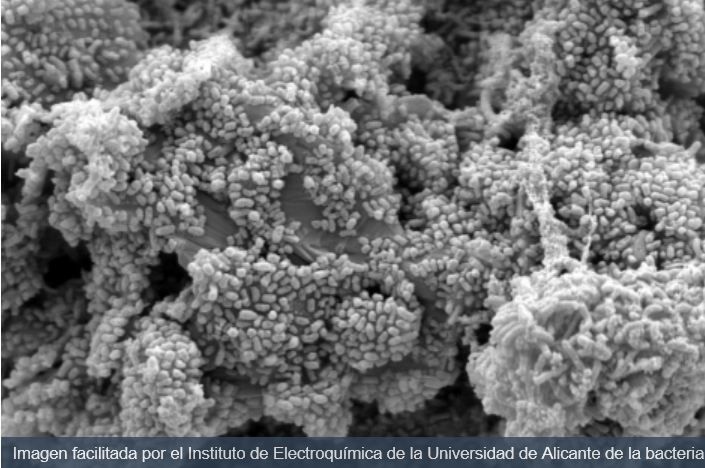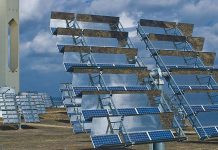
.
A bacterium produces electricity during water purification.
A group of Spanish and foreign researchers are immersed in a project that allows clean energy to be obtained directly from wastewater treatment, thanks to the help of an unusual bacterium capable of producing electricity during its intervention in this water purification process.
The project, financed with three million euros by the European Union, can be applied mainly in companies dedicated to water purification, which would mean considerable savings in energy costs derived from the treatment used to eliminate residual water components, which currently represent between 50 and 60% of the costs.
This research work, coordinated by the director of the University Institute of Electrochemistry of the University of Alicante (UA), Juan Miguel Feliu, has been to design a prototype of a microbial cell for industrial use that simultaneously generates energy and purifies wastewater.
The University Institute of Electrochemistry of the UA has led this multidisciplinary research, called ‘backwire’ (Bacteriological interconnection for energy conversion and biodecontamination), which began in October 2009 and has just ended, doctors explained to Efe Victor Jose Climent and Juan Manuel Ortiztwo researchers from this center.
In addition to the aforementioned institute, considered a European reference center in electrochemical research, the universities of Alcalá de Henares (Madrid), Liverpool (United Kingdom) and Bern (Switzerland) have participated in the project.
The Materials Science and Technology Research Institute (Intema) of Mar de Plata (Argentina) and the Danish company specializing in electrochemical engineering Electro-Cell have also participated.
This “scientific adventure”, in which electrochemistry, microbiology and nanotechnologies have been combinedhas started from previous knowledge about a microorganism, known as Geobacter Sulfurreducenswhich lives in marine environments and riverbeds where there is no oxygen.

This microorganism has “the ability to grow on an electrode”, which makes it possible to take advantage of the electricity generated during its metabolism to create “a very particular type of battery, called a fuel cell”has indicated Climent, who has pointed out that “this allows the production of electricity while eliminating polluting waste”.
In a first phase of the research, the scientists studied, at a very basic level and at a laboratory scale, the physiology of this bacterium and its ability to “communicate electrically with different metals to optimize the conditions for generating electricity”, this report revealed. investigator.
Subsequently, they used this acquired knowledge to design various prototypes, of increasingly larger sizes, of microbial batteries, which are already in operation at the facilities of the University Institute of Electrochemistry of the UA for their possible application at an industrial level.
Current prototypes produce an electrical power of between 20 and 40 watts per square meterwhich is equivalent to about 5 kilowatts per cubic meter of treated water.
According to Ortiz, a research prototype within this area is considered to be applicable at an industrial level when it exceeds a power of 1 kW/m3.
Residual water is the fuel used by the device created by these researchers to obtain electrical energy.
The novelty of this prototype lies in the fact that electrical energy is achieved directly, without intermediate stagessuch as the formation of methane gas, which notably increases the efficiency of the process, Climent highlighted.
Although the project has ended, the researchers believe that the results of the designed prototype can be further optimized and the electrical power increased through a series of modifications in the conditions in which this bacterium binds to the electrode to improve its energy performance.
.
Source: elmundo.es



